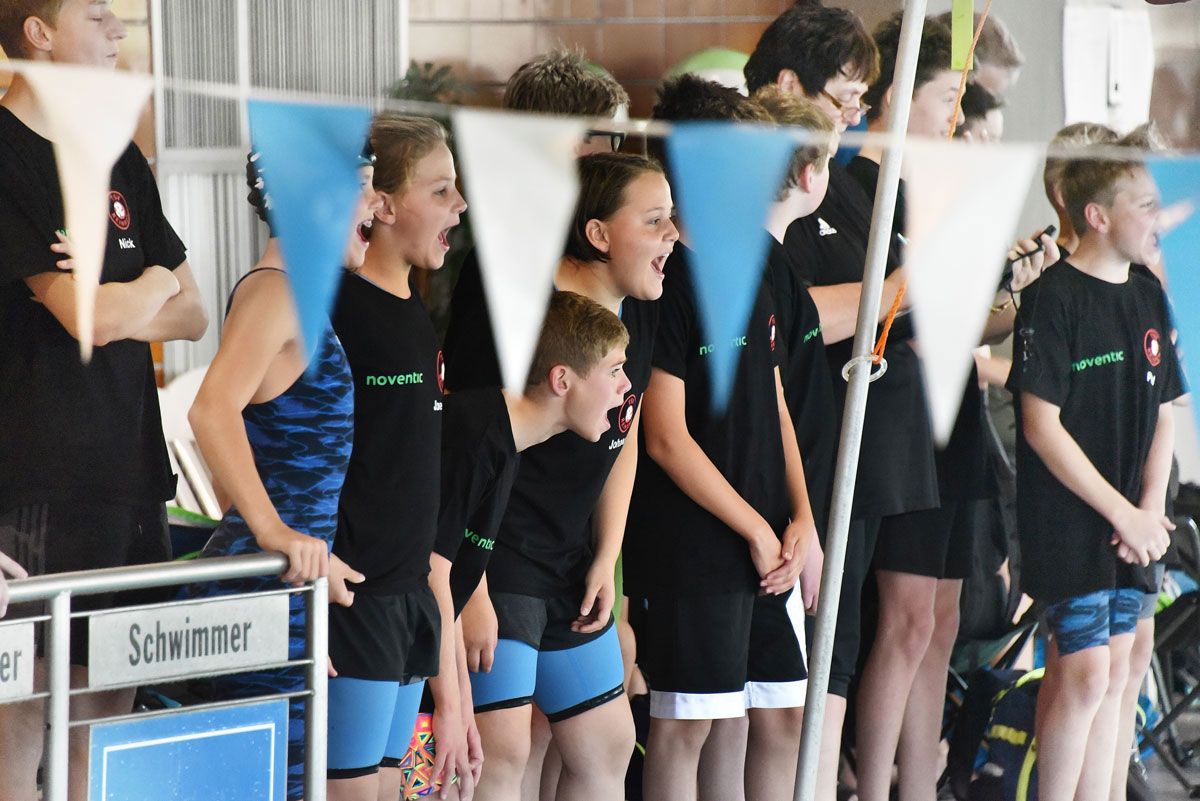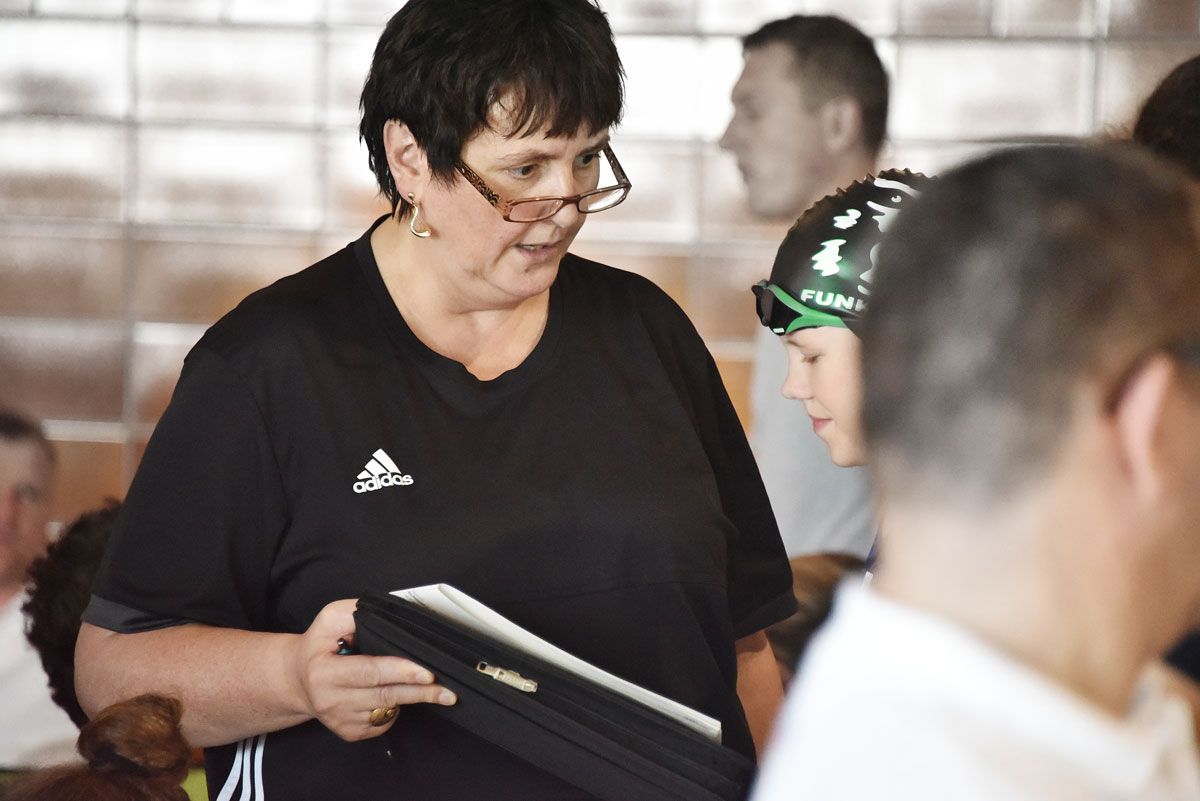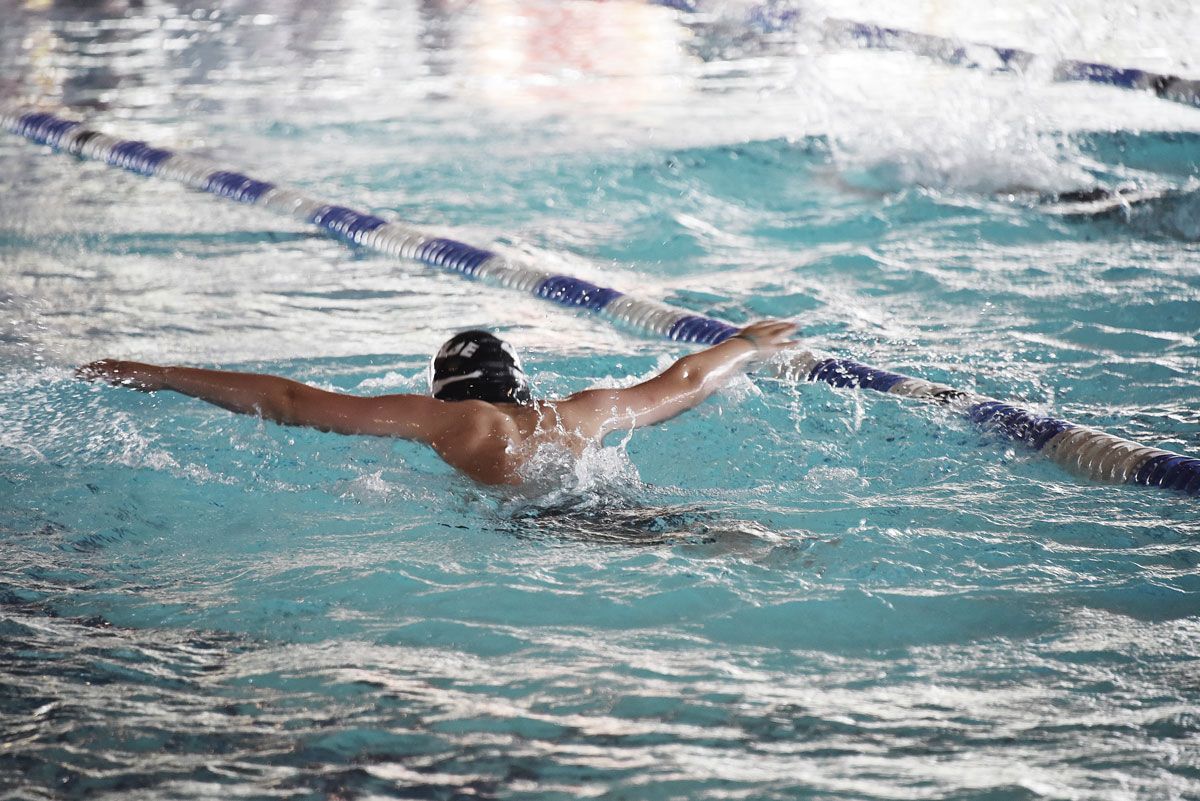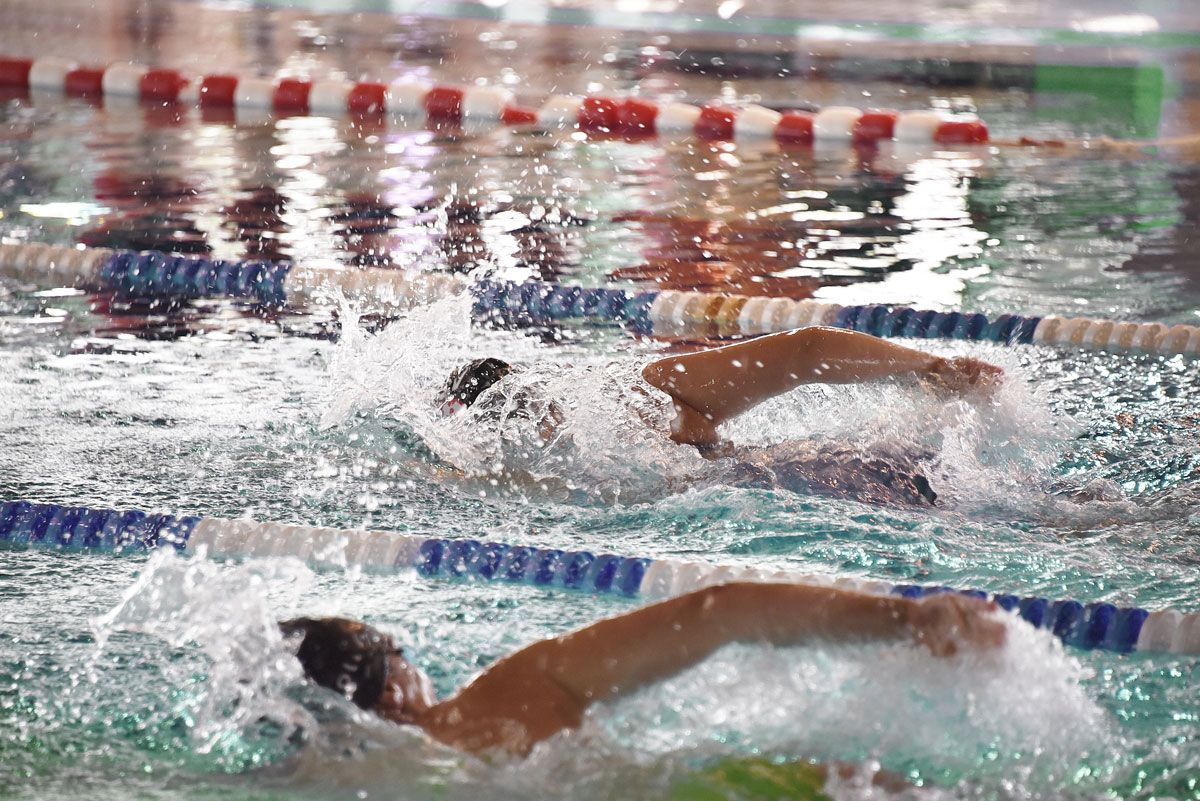Article

When swimming is more than just splashing around: the talented young swimmers from TSV Reinbek train hard and spend a lot of time in the pool. But they also have fun and learn valuable life lessons. It’s great to give them some support. noventic is delighted to do just that, providing the team with financial aid. This enables TSV Reinbek to go on excursions during their training camps and to pay the expensive rental on a lane at the swimming pool.
Swimming training can be a tedious business. It sounds monotonous, a constant battle against the slob within us all, and it consumes a lot of energy and time. And it is long time since there were any swimming stars on the TV to adulate, to dream of emulating. The sports idols of today are no longer called Franziska van Almsick, Britta Steffen or Paul Biedermann, but rather Lionel Messi, Mo Salah and Marco Reus. Despite that, swimming remains the number one mass participation sport in Germany, and plenty of children and young people still find their way to swimming training and derive plenty of fun from the sport.

Birgit Krebs has a pretty good explanation for why that is. She is the swimming coach at TSV Reinbek, located on the outskirts of Hamburg. For 22 years she has dedicated herself to this pursuit, alongside her day job as a school secretary. Krebs, from Rostock on Germany’s Baltic coast, was formerly a top-class swimmer herself, winning the East German 100 metres breaststroke championship for her age group. Today she looks after 20 children and teenagers aged between nine and 18. Naturally performance matters. Therefore, she says, strength and fitness are important, but above all an efficient swimming technique. Combining these is what makes the sport strenuous and yet graceful at the same time. And of course everything becomes light the moment you leap into the water. It is like a brief holiday from the everyday world during which you glide weightlessly over the surface of the water. Some say that the senses are never more closely in harmony than when you are in water. What is more, swimming is natural and healthy. It is easy on the joints, strengthens the muscles, immune system and cardiovascular system and helps ward off disease. It is also good for the soul. Having a workout in the water, forgetting your troubles, floating along. And the fun begins when you notice that you are getting faster and faster, and gliding elegantly and effortlessly through the water.
How, though, do children find their way to swimming in the first place, a sport in which many of them, having joined clubs, train four times a week, thus sacrificing a good deal of their leisure time? “Normally their parents make the first move”, says Birgit Krebs, and the 18-year-old Roman Bukowiecki confirms that in his case: “My father put me up to it”, he recalls, “I was able to do my swimming assessment test with Birgit when I was eight or nine.” Today, when he has to prepare for his Abitur (final secondary school exams), while also working part-time in a bakery, he still finds time for all that training during the week, as well as regular competitions at the weekends. Sometimes he competes for TSV Reinbek in three races a month.

So he grits his teeth and gets on with it, five kilometres per training session, four times a week. “I’m good at switching off while I’m swimming”, says Bukowiecki, who describes his training as a kind of meditation. “It’s relaxing, being there alone with my thoughts. His ambition is to take part in the North-German age group championships, his sights are not set any higher than that.
In Leonie Schreiber’s case it used to be different. She is also 18, was once a pupil at the Olympic Training Centre (Olympiastützpunkt) in Hamburg and had a stressful daily routine: “I left home at 6:20, then a long commute to the Sports School, training from a quarter past seven to 9:30, then school lessons from 10:00, then back to training from 4:00 p.m. onwards.” She got home by 9:00 p.m., “really just to eat and sleep”, and that was it, six days a week. Variety back then meant first some endurance training, then more strength training with weights, then yoga to stretch and relax. However, in her case the glittering career as a swimmer never came to pass. After a riding accident meant she could no longer keep up her training workload, she eventually ended up at TSV Reinbek with Birgit Krebs. There she still does high performance sport, but under nothing like the same pressure. “I’ve reduced my training by half”, she explains, though that still means four or five training sessions a week. A heavy workload for an amateur swimmer, but for Leonie Schreiber this change heralds the start of a “new phase in my life, with leisure time, and friends who don’t just come from the world of swimming.” She too is studying for her Abitur, and now enjoys the way in which swimming clears her head for the challenges of school life. “It remains in the back of my mind that I used to do high-level sport”, she says, “it’s an experience that will stay with me for the rest of my life.”

Dustin Genies has that all before him. But after all he is just 12 years old and ‘only’ trains three days a week. Recently he had his first competitive race. When he was younger he suffered from so-called funnel chest. Swimming was recommended, and clearly it helped. Recently Dustin took part in his first competition, and now he wants to do more. Asked if it was hard work, Dustin says “It’s certainly hard”, but “It’s never boring.”
Maybe that is because coach Birgit Krebs adopts a holistic approach. She regularly travels with her training groups, most recently to Malaga in southern Spain. While they were there they did not confine themselves to the swimming pool. Together they also went on excursions to Gibraltar and other interesting places in the region. Thanks to noventic’s support, excursions like this will also be part of the program during upcoming training trips. “Education is part of the package”, says Birgit Krebs, who appreciates how much such activities strengthen team spirit. Because although everyone swims alone, it is still a team sport.